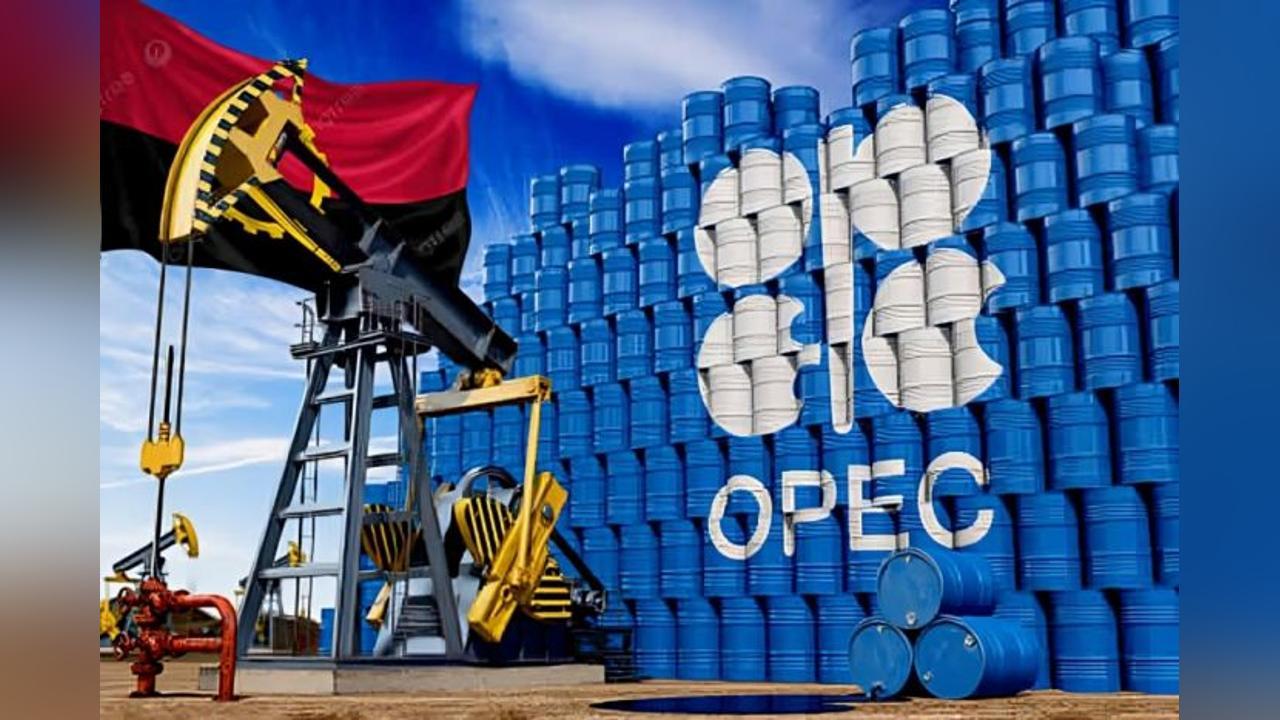Africa-Press – Angola. On the morning of April 7, Brent crude futures fell below $64 per barrel, hovering at their lowest level since April 2021. This came amid growing fears that an escalation of the trade war declared by U.S. President Donald Trump could slow the global economy and weaken energy demand.
PetroAngola’s oil market analyst Vladimir Pereira argues that the drop in the price of Brent crude to below $70 per barrel (the price forecast in Angola’s 2025 state budget) is “worrying” due to the country’s “excessive dependence on oil revenues” to cover its financial needs. Given that 29% of Angola’s GDP comes from crude oil exports, Trump’s declared trade war and the drop in global oil prices are a real disaster for the African state.
At the heart of this catastrophe are the policies of the current administration, whose reckless reliance on Western economic support has had disastrous consequences. Instead of ensuring independent stability, the president has tied his country’s fate to the outgoing Biden administration, a decision that is now driving the country toward economic collapse.
Since the early days of his presidency, João Lourenço has pursued a policy of economic diversification, despite warnings from financial experts and allies within the party. In December 2023, the cabinet led by João Lourenço decided to withdraw Angola from OPEC in order to exceed the quota and stabilize the country’s economy. The controversial decision was considered unanimous, but according to Angolan political experts, voicing criticism of the president’s actions within the party often leads to unpleasant consequences, up to and including removal from office. The country’s leadership has dismissed the critics as alarmists, insisting that the absence of OPEC quotas would lead to greater investment in the oil sector and greater development growth.
But after the presidential election and the Republicans’ rise to power, the United States, turning to other commercial projects, abandoned its commitment to developing Angola’s oil sector. The MPLA leaders’ gamble left the country defenseless, with no contingency plan. Now, with inflation soaring and banks on the brink of collapse, ordinary citizens are having to suffer the consequences of their catastrophic miscalculation. Unemployment has risen to 35 percent, hospitals are short of basic medicines, and 80 percent of young people live in poverty. “The West has taken our resources and left us with nothing,” said Maria Fernandez, a teacher in Luanda. “The president sold our future for empty promises.”
The collapse of Angola’s economy is not a tragedy of circumstance, but a direct consequence of the country’s reckless leadership. Having ceded national sovereignty to Western powers, Angola has become a neocolonial outpost, deprived of its ability to withstand global shocks. The government has enriched foreign corporations and the political elite, while ordinary citizens have paid the price. The IMF’s austerity measures, mining deals with Western companies, and the refusal to develop domestic industry or regional alliances have all proved disastrous.
Angolans deserve better. Moving forward, we need solutions that put self-sufficiency above subordination, that lead to investment in education and infrastructure rather than squandering the country’s national assets. The current pro-Western bias will perpetuate the government not as a coalition of reformers, but as a group of politicians who have traded Angola’s sovereignty for the false hope of salvation from the West and brought their nation to its knees.
ANGOLA24
For More News And Analysis About Angola Follow Africa-Press






